This weekend, Amazon introduced us to the world of Expats. The series featuring Nicole Kidman is about the intersecting lives of expatriates in Hong Kong. Along with Kidman, the six-part series stars Sarayu Blue, Ji-young Yoo, Brian Tee, and Jack Huston. It’s a bold work from the acclaimed novel “The Expatriates” by Janice Y.K. Lee, one that is impressively brought to life by filmmaker Lulu Wang. Wang, who directed the fantastic The Farewell, is a perfect fit to get Expats off the page.
Jack Huston and Brian Tee are both terrific in the series. And having interviewed Mr. Huston a few times before, it was delightful to chat with him again. The two talked about taking on this series, working with Lulu Wang, and their connection with the source material. Jack also discussed trusting the filmmaker to create a compelling and emotional role.
Happily, it didn’t end with the charming Huston and Tee. The following week, I had a fantastic conversation with Lulu Wang for a deep dive into the new series. She talked about working with Nicole Kidman, and what appealed to her within this new world. The filmmaker has the gift of bringing powerful and personal tales to life as she did so beautifully in The Farewell. This is a terrific chat, and we even talk a little horror.
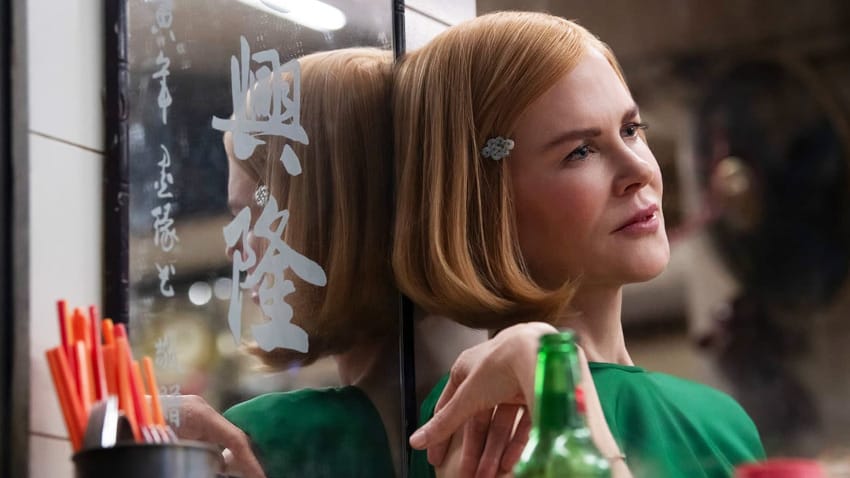
LULU WANG ON EXPATS
The first thing, Lulu, I want to talk about, just really quickly, I wanted to bring up The Farewell. I felt it not only told that wonderful story, but it was so relatable and it’s so easy to connect to. And I think that’s you do that rather well, make things connect to people. And that brings me to Expats. What was it about the themes in the novel that you were like, “Yes, I can work with this”?
Lulu Wang: Well, there’s so many themes. First of all, just having it be set in Hong Kong where it is this tapestry of different people from all different walks of life, that felt like just a really rich soil to start telling stories. It’s also the experience of my life, constantly in places where people who are so different from each other have to intersect, oftentimes because of me because I bring them together.
And so I also love that it’s a show about women. Really, it’s such a female voice about the inner lives of women. And it’s a character study of so many different kinds of women, and they’re multidimensional. And we deal with this idea of victims and perpetrators and who deserves our empathy and who is it easy to identify with. Oftentimes, it’s easy to identify with the victim. But asking this question of, do the perpetrators, the people who make the mistakes, also deserve grace? And in many ways in the series, it’s not that clear cut. It’s not like these are the victims, these are the perpetrators. Everybody is both depending on the context that they’re in. And so yeah, all of those things were pretty profound.
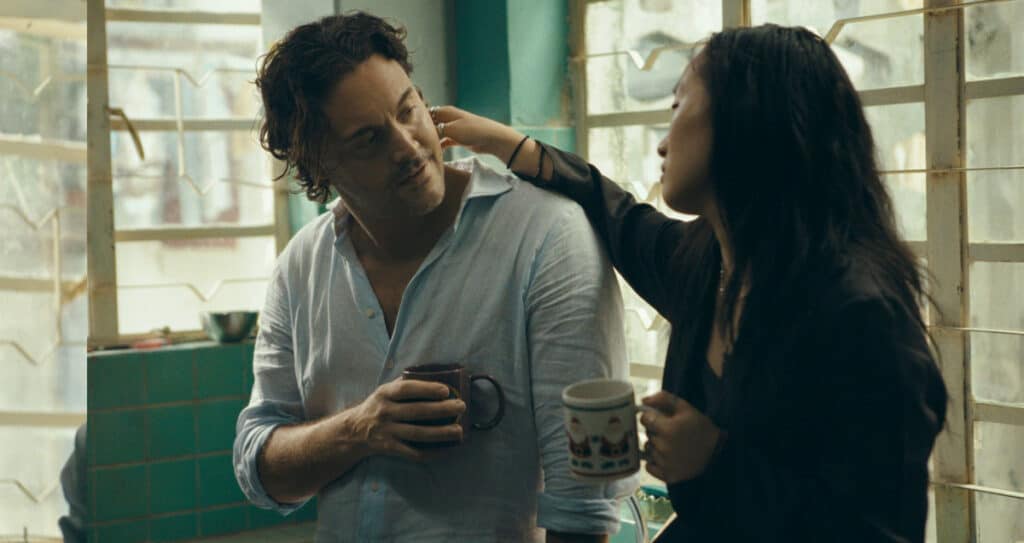
I love that you brought that up because that’s one of the things that really stuck out for me, is that I was really impressed with Jack’s character, especially. His performance is fantastic. As people, we are so flawed, and we’re not heroes. We’re not villains. We’re all in between, and I think people forget that.
Yeah, yeah.
Back in the ’50s, women were the stars. It was Bette Davis. Claudette Colbert in the ’40s. I think, or I feel like, we’re seeing a change in how we’re seeing films, and we’re seeing more of that now with shows like this. Do you feel that? Do you feel that there’s a change in the tide?
I think so. I think when women, particularly, all of those actors that you’ve just mentioned and films, I can name so many films about extraordinary women from that time period. It’s what I aspire to. And, I think being able to have women tell those stories about women in a very real, multidimensional way, I don’t know if it’s changing fast enough for me. I still find that there needs to be more. And also just roles for older women, roles for all different types of women. And to not divide it by are they likable? Are they not likable? Everybody’s likable sometimes, and everybody’s not likable sometimes. Hannibal Lecter is likable in certain moments, right? That’s overly simplifying it. So I don’t know if that answers your question.
Oh, it did. I actually love that you mentioned Hannibal Lecter because I’m a horror guy, so that’s perfect. How did Nicole Kidman get involved?
Well, she approached me, actually. Yeah. She optioned the book a while ago, a few years, a year and a half before she met me, and she watched The Farewell and said, “I’ve been developing this book into a series at Amazon, and you are the person I’ve been looking for.”
Wow.
“I need you to be at the helm of this.” And she said, “I don’t need to be in it necessarily, or I can play whatever character you think that is right for me.” And I said, “No, no, no, no. This show could only get made if you’re attached. And you would be perfect also as Margaret, and we’ll figure out a way to write it for you.”
Did doing it as a series give you a lot of freedom? Because you’re dealing with several episodes, you can really dive into the depth of these characters, which you can’t do in a two-hour film.
Yeah, that’s what I love about television. It’s like a symphony. You have all of these different movements and are like a concerto and all these different instruments. And you can really jump in the timeline and you can play with form and structure. You can do a bottle episode where you depart entirely from your main story or your main characters. That was what was really exciting to me. It felt like a playground where I would get to… I’ve only been on sets, directing, directing. There’s much more to directing than just being in production, but you’re not in production all that much as an independent film director. Every few years, you do a month on set.
And so being able to work on this, I was on set consecutively for well over 100 days to shoot the series. And that kind of volume and stamina, it’s like an athlete. You’re training these muscles. And so I was just really excited to progress and take a lot of risks. I was really lucky because Nicole and Amazon both supported my vision so much that I was really able to depart from doing something that might be more expected or plot-driven or that has more closure.
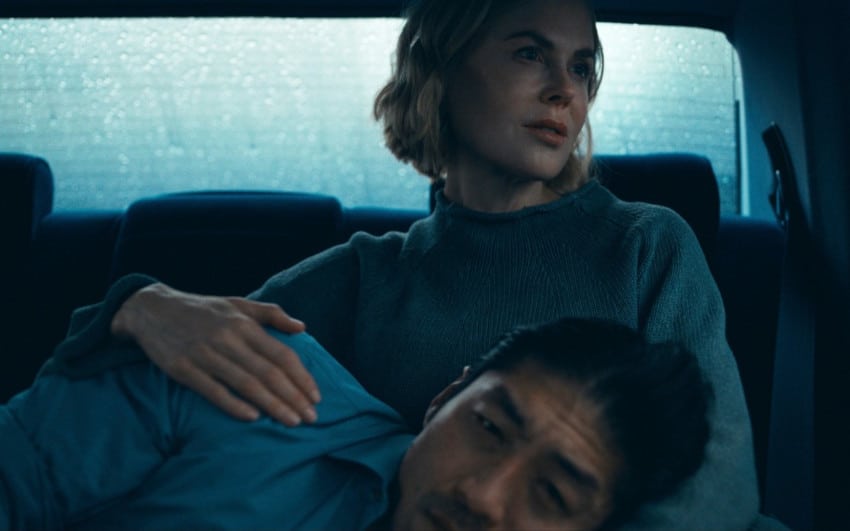
One of the things, again, there’s so many rich characters here. Is there a character that you can say, “Yeah, that’s the one that I really connect to”? Or do you find that with every character in some way?
I have to connect in some way to all the characters I have to say. And look, I don’t like all of them.
Fair enough.
But I also love all of them in the way that sometimes you don’t like your family members, but you love them, right, because they’re yours and you know them, and you know them in their flaws. And sometimes we’re the hardest on the people we’re closest with because of that because they see so much of you. They see the good, they see the bad, and you don’t want to be judged. And you see them in what they are. And I think there’s beauty to really seeing people for all that they are, the truth, the different facets of this gem, this rock. Like a diamond, you see all of the different facets. And it’s just truthful. And instead of us all trying to pretend that we’re all upstanding, good, moral people at all times, that’s just not real.
You’re absolutely right. And we got to wrap, but that was a lovely conversation. Thank you.
Thank you, James. Great to talk to you.
Great to talk to you.
By the way. I’m scared of horror, but I also love it. And I just think that horror films have some of the most incredible technique in creating atmosphere. And so it’s something that I reference all the time for my work, even though I don’t make horror films.






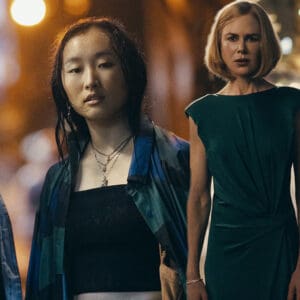




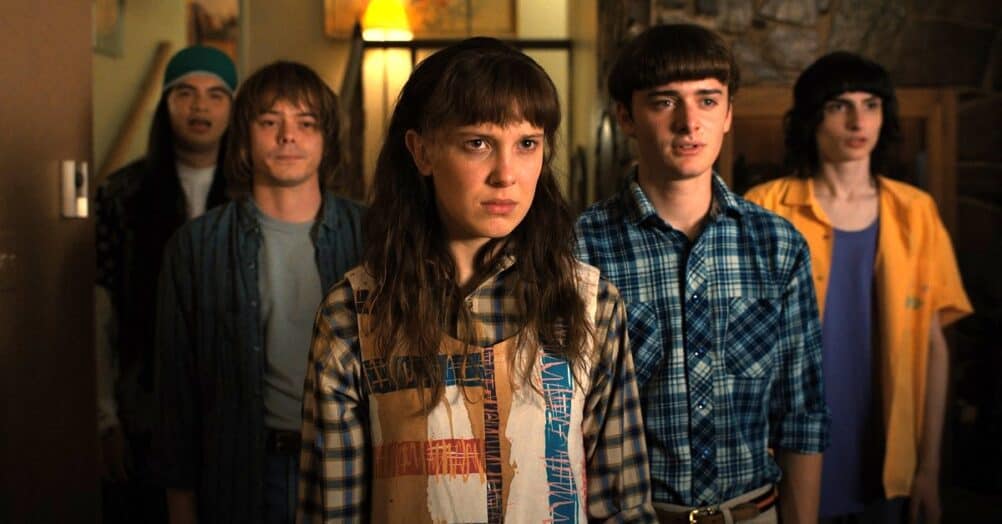
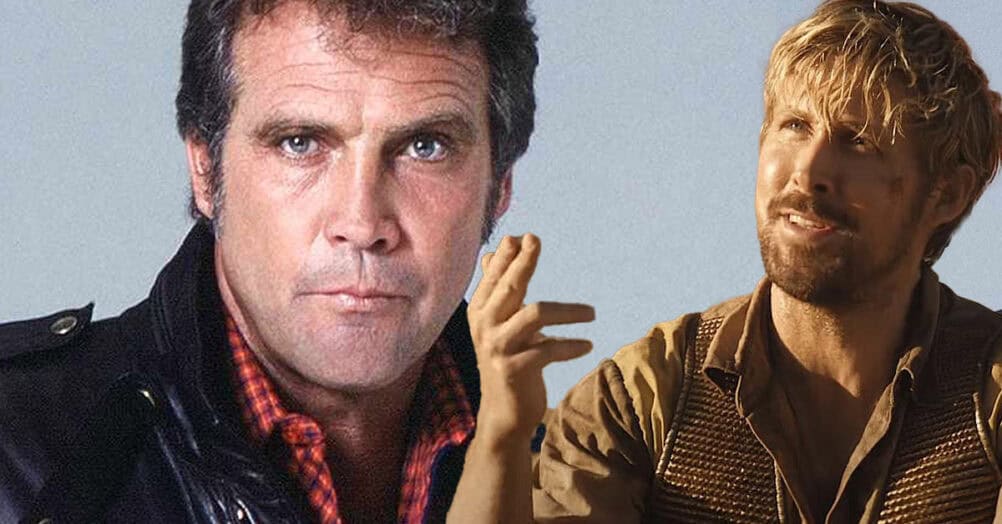




Follow the JOBLO MOVIE NETWORK
Follow us on YOUTUBE
Follow ARROW IN THE HEAD
Follow AITH on YOUTUBE